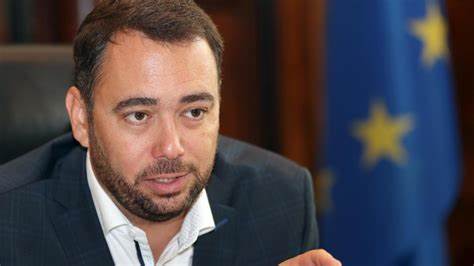The far-right National Rally's strong showing in the first round of France’s early legislative elections has prompted rapid reactions from Francophone Belgian parties, with Maxime Prévot from Les Engagés calling for a definitive stand against the far-right.
The party obtained 33% of the votes, while the New Popular Front, an alliance put together hurriedly by the left following the dissolution of the French National Assembly, came in second with 28%. The left-wing alliance comprises the Socialist Party, Communist Party, Greens, La France Insoumise (FI) and Raphaël Glucksmann’s Place Publique party.
The presidential camp came in third with a 20% share of the votes.
Belgian left divided on next steps
There have been increasing calls for candidates who finished third to step down ahead of the second round, in order to avoid splitting the votes and to block the National Rally.
However, some politicians are reluctant to support the FI, equating it with an extreme party as harmful as the National Rally. Mouvement Réformateur (MR) head Georges-Louis Bouchez argued, for example, that FI cannot be viewed as a republican bulwark against the National Rally. “Only those candidates who came third against these two extremist populisms are the real democratic ramparts,” he wrote on X.
Maxime Prévot of Les Engagés, who is likely to join MR in a future Walloon government, disagreed: “There should be no hesitation against the far-right: they must be stopped by ensuring the highest-placed candidate among the other parties has everyone else’s support,” he told Belga News Agency.
'63% of the French voted for the extremes'
Catherine Fonck of the Centre démocratique humaniste (CDH) had a different take on the issue. Relegating the entire New Popular Front to the far left. Fonck observed on Sunday night that “63% of the French” voted for “the extremes” in the first round.
In March, France's State Council deemed FI, like the French Communist Party, part of the left rather than the far left. The National Rally, on the other hand, is categorised as far-right.
Paul Magnette (PS), expressed regret over a “historic turn in the political landscape” with the National Rally’s first round victory. “We see this, sadly, in several European countries: wherever the far-right advances, liberties recede,” he added.
Right-wing surge blamed on government's 'anti-social and authoritarian policies'
Rajae Maouane, the outgoing co-president of Ecolo, commended “the courage of democrats and their call to vote for anyone who can still defeat the xenophobia and misogyny of the Le Pen clan.”
Raoul Hedebouw, president of Belgian Workers Party, PTB, attributed the results to “seven years of anti-social and authoritarian policies by President Macron.”
In his view, pitting the candidates of the New Popular Front against the National Rally is “playing the far right’s game.”
The second round of elections will take place in France on Sunday 7 July.

